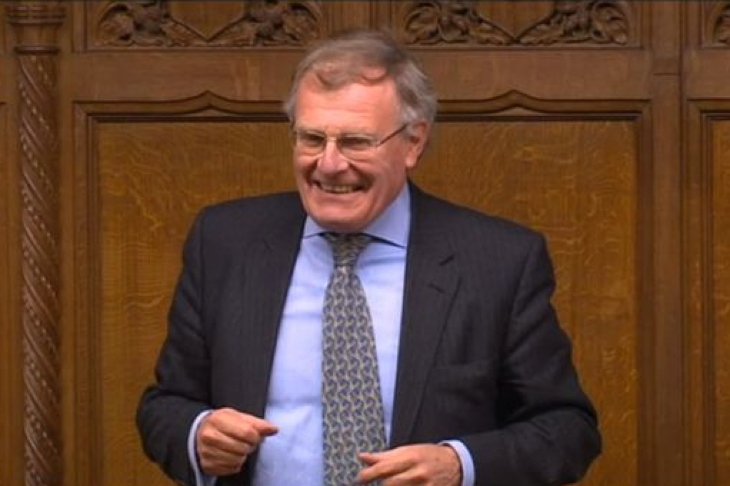I represent Gina Martin, the 26-year-old who founded the campaign to make upskirting a specific sexual offence under English law. Last Friday, much to the dismay of his colleagues, Sir Christopher Chope blocked a bill in support of Gina’s campaign. When he shouted ‘object’, Chope was not then aware of the detail of the bill, the furore his decision would cause – or indeed what upskirting actually was.
Chope has now written for The Spectator and given interviews to the Times and ITV News, as well as his constituency paper the Daily Echo. His position remains that his objection to the upskirting bill has nothing to do with its merits but is instead due to two points of principle. Firstly, Chope argued that minister Lucy Frazer’s announcement that the bill would be supported by the government effectively turned the private members’ bill into a government bill; this meant that the private members’ bill procedure should not be used. Secondly, he said, the bill had not been debated and so it would be wrong to let it proceed.
It is here that Chope is wrong: the second reading of a bill is the stage at which the Commons should approve its general principles, with scrutiny on its detail following at a later stage. There may be discussions to be had about the precise drafting of the bill, but the general principle of criminalising upskirting is not in dispute. No MP – not even Chope – has come forward to oppose this.That Chope shouted down a bill without educating himself as to the subject, the extent of support or the level of consultation on its terms is rather remarkable. What he would have found out with any level of inquiry is that there is no question that there is a gap in the law on upskirting (between outraging public decency and voyeurism); and the current law is in any event inappropriate, because outraging public decency (most frequently used) neither reflects the harm to the victim nor the sexual nature of the offence. His objection also ignores the point that the upskirting bill is supported by MPs on all sides, including the government, Lib Dems, Labour and the Greens. In such circumstances, it is difficult to determine what Chope thinks must be debated and with whom. Surely Parliamentary time would be better spent on issues on which there is actually cause for debate?
Chope’s position that the bill became a government bill by reason of the government supporting it also seems curious. By this argument, private members’ bills are no more than a shop window through which the government should review potential pieces of legislation before either passively or actively killing them off and then bringing forward the change as its own bill, in its own time.
It is clear that private members’ bills rarely succeed (not least because of the lack of time allocated to them) but Westminster has a history of enacting such bills. On this occasion, people from all sides worked hard to build consensus so that Wera Hobhouse, an opposition backbencher, could – with the support of the Commons – help a young woman bring about a much-needed change in the law. Surely the ability for backbenchers to be at the fore of effecting change is what a private members’ bill is all about? This isn’t a debate about whether Chope was right or wrong to do what he did. But it remains vital that the current gap in the law is filled so that women (and men) are better protected.Of course, it could be argued that Chope is right to say that he has helped the campaign behind this upskirting legislation. As a direct result of his actions, the government will put before the Commons tomorrow its own upskirting bill. That bill will be in the same terms as Wera’s; but the government bill has the advantage of certainty and speed in terms of progressing into law, given that ministers have promised to arrange its second reading before the end of this Parliamentary session, and to make committee time available early in the next term.
With the route forward clear and settled, the question now is what Chope will do when Wera’s private member’s bill calls again on 6 July. It seems clear from Chope’s interviews – and the fact that the bill will not be debated on that day – that again, on principle, he will “Chope down” the bill.
Doing so will make things cleaner going forward, there not then being two bills with the same content (until Wera withdraws her bill on the Government’s bill clearing second reading).
But this would still be a great shame, not only for Wera, but also as a precedent for cross-party working on private members’ bills. It also damages voters’ perception of Parliament, its processes and, of course, Sir Christopher Chope himself. Perhaps the government will accelerate its second reading to avoid this or perhaps when we meet Chope he will be persuaded that, with the government bill by then lodged, the better thing to do next month is to be pragmatic (or absent) and let Wera’s bill pass. It would be symbolic of his support of the campaign, if nothing else.






Comments